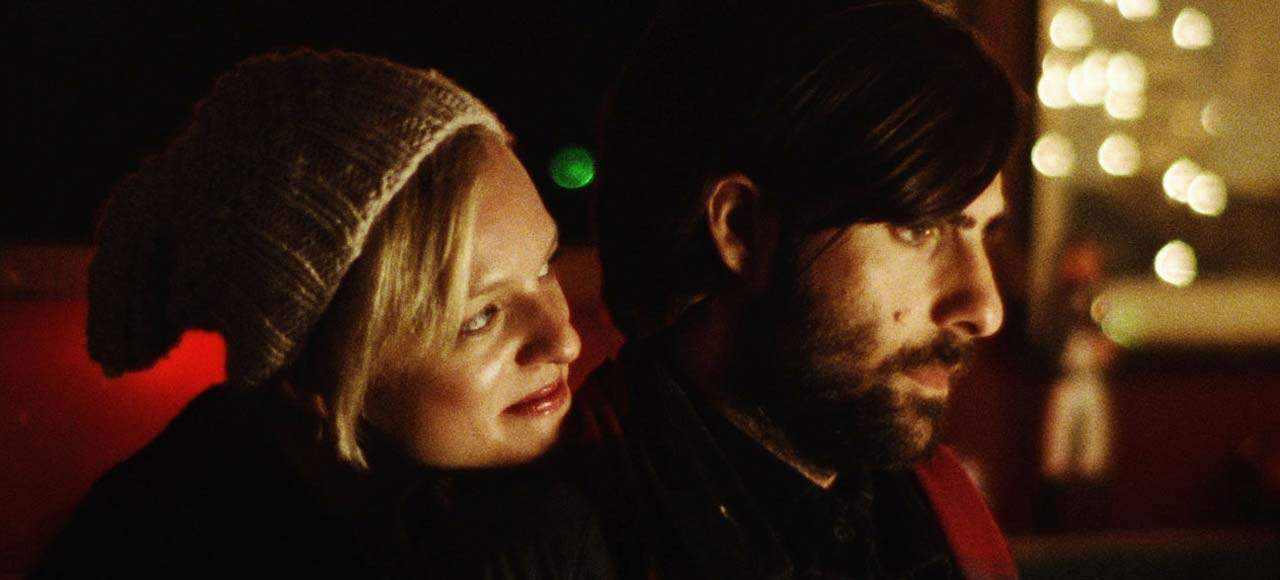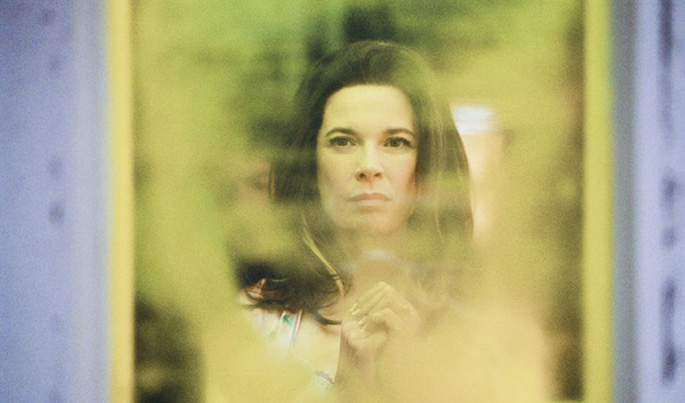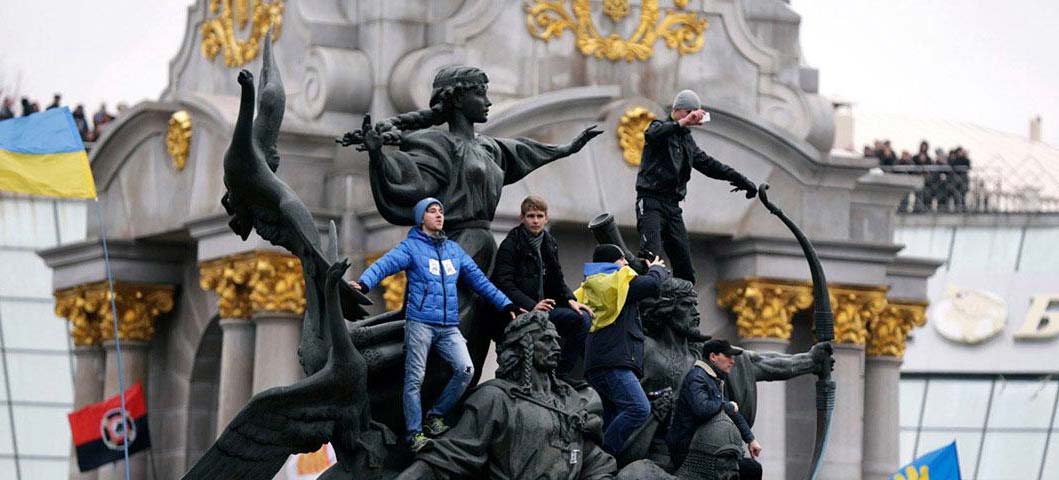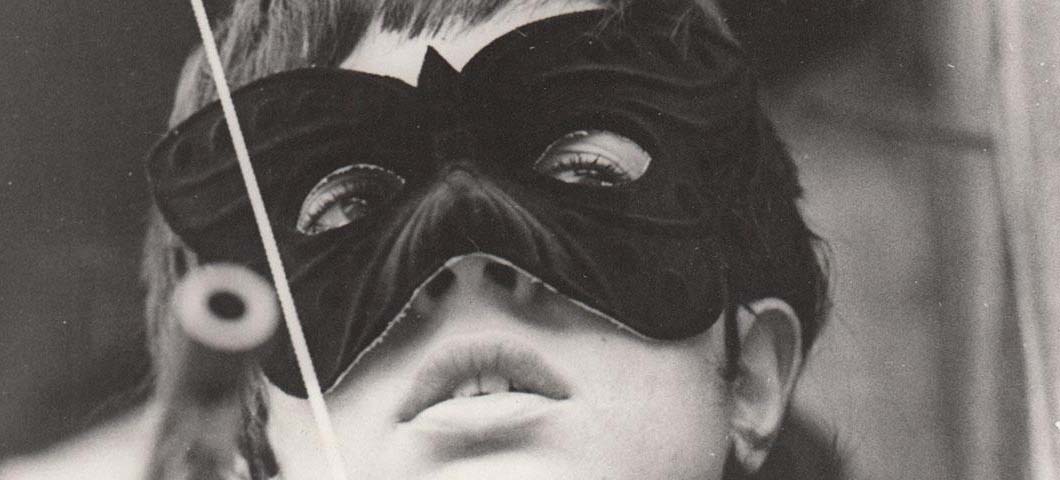The Best, Worst and Weirdest of the Melbourne International Film Festival
If there's justice in the world, the best movies will be in cinemas soon.
After 18 days of the world's finest and most cutting edge films back to back to back, the Melbourne International Film Festival has packed up the popcorn and projectors. Here's what our critics loved, loathed, admired and squirmed over.
![]()
The Best Films
MOMMY
The latest film from 25-year-old enfant terrible Xavier Dolan pours unconstrained emotion into a claustrophobic space. Shot in boxy 1:1 aspect ratio, the film tells the story of fiery widow Dianne and her troubled teenager Simon, a pair of bombastic outsiders in a white-bread, buttoned-down world. Anne Dorval and Antoine Olivier Pilon are both stunningly good, their performances positively glowing with uninhibited feeling. The tightness of the frame, meanwhile, reflects Di and Simon's limited options, even as their energy threatens to force the edges apart. This is a funny, earnest, devastating film, one that's vitalised, rather than limited, by its intriguing technical conceit.
-Tom Clift
![]()
FORCE MAJEURE
I really wish this wasn't my favourite film of the festival. For the sake of my own credibility, I would prefer that my favourite film wasn't a film released by the company for whom my wife works as marketing manager. But the heart wants what it wants, and I'm talking about both her and the film when I say that. Force Majeure, which won the Un Certain Regard Jury Prize at this year's Cannes Film Festival, is a film that manages to completely deconstruct the concept of masculinity while also being utterly hilarious at almost every moment. It leaves you in a state of shock, but it's so entertaining and funny, you immediately want to watch it again regardless. An amazing achievement on every level.
-Lee Zachariah
![]()
LISTEN UP PHILIP
The blending of ambition, arrogance, inspiration and irrelevance troubles Jason Schwartzman's titular Philip in Alex Ross Perry's third feature. His second novel isn't garnering the requisite attention, and his girlfriend, Ashley (Elisabeth Moss), is better off without him. So when his mentor, Ike (Jonathan Pryce), offers up his holiday home, Philip quickly accepts. Yet, as astute as Perry's rendering of the familiar writer's self-absorbed struggle is, the film tells not just his story but Ashley's and Ike's too. Such structural daring matches an embrace of the abrasiveness of artistry, as played with acerbic comedy, cast with perfection and shot with the warm texture of super-16mm.
-Sarah Ward
![]()
BLIND
Forgive the pun, but sometimes at a festival, it's best to go in blind. A film without a huge amount of pre-MIFF buzz, the directorial debut of acclaimed Norwegian screenwriter Eskil Vogt concerns a woman named Ingrid struggling with the loss of her sight. Alone in her apartment, she constructs an elaborate fictional narrative through which she works through her fears and insecurities — particularly in regards to her husband, who she fears may be having an affair. It's compelling, self-reflexive, sensual and funny. Think Stranger than Fiction — only full of incredibly graphic sex.
-TC
![]()
The Boldest Experiments
MAIDAN
You'd think that a largely static camera quietly observing the protests in Ukraine, with no narration and very little context, would be dull as dishwater. Yet Maidan is one of the most incredible documentaries I've seen in a very long time. When the protests begin in the Ukrainian square, they are peaceful and friendly. Children sing on a stage to an appreciative crowd. As the months drag on, the authorities become more tense, and we observe the situation devolve into something horrific and violent. The final moments, which include possibly the most beautiful sequence ever captured on film, leave not a dry eye in the house.
-LZ
![]()
LA ULTIMA PELICULA
Alex Ross Perry didn't just direct one of the best features of the festival, he also stars in a creative highlight. Focused on a filmmaker trekking through Mexico circa 2012 to make an apocalyptic effort on the last reels of celluloid, La última película channels a distinct sense of the disjointed in its pseudo-documentary callback to Dennis Hopper's The Last Movie. Formats switch alongside tone and intention, the narrative meanders and rambling improvisation reigns — yet so does affection for its thematic aspiration and aesthetic beauty. That Mark Peranson and Raya Martin's film both probes and parodies the conversation surrounding its conceit also adds to its offbeat appeal.
-SW
![]()
OBVIOUS CHILD
A brilliant response to weirdly conservative pregnancy comedies like Juno and Knocked Up, Gillian Robespierre's Obvious Child is probably the most entertaining movie about abortion you'll ever see. Former SNL cast member Jenny Slate is hilarious as Donna Stern, a struggling New York comedian who gets pregnant after a drunken one night stand. The film's progressive, level-headed treatment of abortion makes it a rarity amongst American films, which when you think about it is fairly depressing. In any case, Obvious Child was early one of smartest, funniest comedies at the fest.
-TC
![]()
Most WTF Moments
GOODBYE TO LANGUAGE
'Trolling' is something that is usually the domain of adolescents on social media. It's rare that an 83-year-old director will engage in such behaviour, but that's where Jean-Luc Godard — hero of the French New Wave — disagrees. Following on from his nigh-unwatchable Film Socialisme in 2010, Godard again creates something deliberately designed to irritate his audience. Goodbye to Language is filmed in 3D, and some shots contain the most impressive 3D I've ever seen. There is a depth to many of these shots that no Hollywood film has yet achieved. Yet for the majority of the running time, the 3D is specifically designed to make you cross-eyed, pushing the two angles just a little too far away from each other. Or in some cases, way, way too far away from each other. Detachable eyes are essential to watching this film without incurring a migraine.
-LZ
![]()
OUT 1: NOLI ME TANGERE
The entirety of Jacques Rivette's 13-hour opus invites exclamation; it's not called the cinephile's holy grail without reason. Seemingly impenetrable extended sequences of experimental theatre, intertwined with a man (Jean-Pierre Leaud) caught in a conspiracy and a woman (Juliet Berto) fleecing the unsuspecting, evolve into a patchwork portrait of a time, place and mood. As it ebbs and flows, plays and provokes, everyone strives for but struggles to achieve their target. Though Out 1 offers no neatness in narrative or certainty in climax, neither does it leave the viewer unsatisfied. Instead, Rivette constructs an experience unparalleled in its insidious intrigue. Once you commit, you can't look away.
-SW
![]()
WHY DON'T YOU PLAY IN HELL
The shining star of the otherwise tepid Night Shift section, the latest film from Japanese splatter-head Sion Sono is a blood-soaked love letter to the movies. An absurd, exuberant mix of western, mob movie and samurai flick, the story follows a group of amateur filmmakers who get hired to 'direct' the showdown between two rival Yakuza clans. Packed with profanity, gore and over-the-top action, Why Don't You Play in Hell? is two straight hours of cinematic insanity.
-TC
![]()
Most Disappointing Films
WISH I WAS HERE
To say we were disappointed by Zach Braff's Wish I Was Here implies we were looking forward to it. Even those with fond memories of his debut Garden State (and hey, we count ourselves among them) will find it hard to stomach this privileged, tone-deaf family dramedy. It's a shame the phrase 'first world problems' has now been overused into oblivion, because it would be aptly deployed in this film, where very few of the problems faced by the leads are possible to sympathise with. Rich people struggling with not being quite rich enough? Yeah, it's not exactly Sophie's Choice.
-LZ
![]()
JACKY IN THE KINGDOM OF WOMEN
It's a premise with promise and a production and pedigree with the same potential: a Monty Python-esque skewering of gender stereotypes and fundamentalism, filtered through a Cinderella-like story from graphic artist turned filmmaker Riad Sattouf (The French Kissers), and brought to life by a cast including Charlotte Gainsbourg and The Artist director Michel Hazanavicius. It's also a plain example of an idea ill served by its execution, with everything broad and blatant in the role-reversal comedy that eventuates. Laughs are few, as are subtleties, despite the spirited attempts of the director and performers. Jacky in the Kingdom of Women should boast ingenuity but instead languishes in obviousness.
-SW
![]()
THE DISAPPEARANCE OF ELEANOR RIGBY
The Disappearance of Eleanor Rigby was one of the more unique entries of the program, in that it's actually two separate films that together recount the breakdown of a marriage. Eleanor Rigby: Her is told the perspective of the wife, Eleanor, played by Oscar-nominated actress Jessica Chastain. Unfortunately, while the formal conceit is fascinating, the script leaves a lot to be desired. Dull, mopey and full of unconvincing dialogue, the first film ended up being so disappointing that we didn't even bother with part two.
-TC
![]()
By Tom Clift, Sarah Ward and Lee Zachariah.










